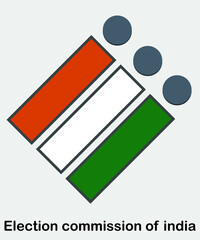News Highlight
The Supreme Court said it would consider a plea seeking a lifetime ban on people convicted of offences from contesting elections.
Key Takeaways
- The Central government, in an affidavit filed in 2020, the Central government rejected the idea of a lifetime ban on convicted people contesting elections.
- It has been said that six years of disqualification under the Representation of the People Act of 1951 was enough for legislators.
- However, the Election Commission of India in 2017 supported a lifetime ban on convicted politicians.
Membership of Parliament: Qualifications and Disqualifications
- Qualifications:
- A person is qualified to be a member of parliament under Article 84 of the constitution if he:
- An Indian citizen
- In the Rajya Sabha, he or she must be 30 years old,
- whereas, in the Lok Sabha, he or she must be 25 years old.
- Possesses any other qualities that may be stipulated in that regard by or under any law enacted by Parliament.
- Disqualification:
- Article 102 of the Constitution establishes conditions for a member of either House of Parliament to be disqualified.
- If the member fails to comply with the rules, he or she will be disqualified.
- If he holds a profit-making office that is not listed in the laws of parliament.
- If he is found to be mentally ill by a competent court.
- If he is discovered to be an unsolved insolvent.
- If he is not an Indian citizen.
- If any law passed by Parliament disqualifies him.
- Disqualifications under the Representation of the People Act 1951
- The member must not have been found guilty of certain election offences.
- The member must not have been convicted of any offence resulting in imprisonment for two or more years.
- The member must not have failed to lodge an account of his election expenses within the time limit.
- The member must not have any interest in government contracts, work or services.
- The member must not be a director or managing agent nor hold an office of profit in a corporation in which the government has at least 25 per cent share.
- The member must not have been dismissed from government service for corruption or disloyalty to the state.
- The member must not have been convicted of promoting enmity between different groups or of the offence of bribery
- The member must not have been punished for preaching and practising social crimes such as untouchability, dowry and Sati.
- Disqualification on the grounds of defection:
- A member incurs disqualification under the defection law in the Tenth Schedule.
- If he voluntary gives up the membership of the political party on whose ticket he is elected to the House;
- If he votes or abstains from voting in the House contrary to any direction given by his political party
- If any independently elected member joins any political party.
- If any nominated member joins any political party after the expiration of six months
Pic Courtesy: The Hindu
Content Source: The Hindu



